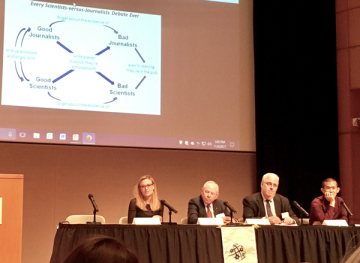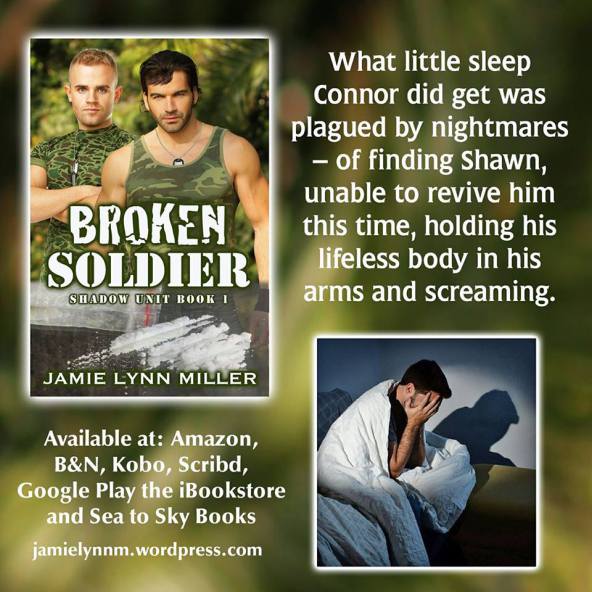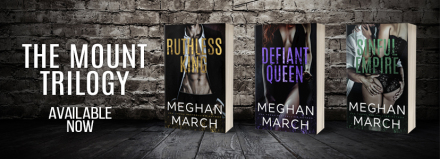“Ken Burns’ The Civil War” (1990)
TV Series/Documentary

Episodes: Nine
Created by: Ken Burns
Featuring: David,McCullough, Sam Waterston, Julie Harris, Jason Robards, Morgan Freeman, Garrison Kellor, Athur Miller, and many more
Abraham Lincoln: “As a nation, we began by declaring that “All men are created equal.” We now practically read it, “All men are created equal, except Negroes.” Soon, it will read “All men are created equal, except Negroes, and Foreigners and Catholics.” When it comes to this, I should prefer emigrating to some country where they make no pretense of loving liberty. To Russia, for instance, where despotism can be taken pure and without the base alloy of hypocrisy.”
If you don’t know who Ken Burns is then you are missing out on an entire genre of television documentaries that are all almost second to none. It used to be that Burns (with partner Novak) used to produce the very best long form documentaries but with the advent of reality television, binge watching, crime shows and many other innovations as well as new formats Burns style has suffered from comparison whilst bordering on nostalgic. What is interesting is that this series only borders on the nostalgic but never crosses the line, which in itself is a gift that Burns exploits in all of his documentaries.
In fact “The Civil War” was to be not only the first of Burns’ epic television documentaries that would capture the imagination of a welcoming television audience, it also forms what is, in my mind, one of the cornerstones of his selection of masterpieces that follow and include; Baseball” (1994), The West (1996), Jazz (2001) and The War (2007). This was the first time that Burns; inimitable style as well as the way in which he would illustrate facts came to the fore; it instantly made him an authentic documentarian as well as master showman, unrivalled in his chose medium. When this series was screened on PBS in the US it had a then record viewership for PBS of over 40 million viewers.
In creating the documentary regarding the American Civil War (1861-65), Burns is innovative in a variety of ways; these innovations would become his trademark. First is his emphasis on personal journals rather than the nuts and bolts of battle strategies as well as the dry politics of the day. There is little use of interviews with academics, instead we are given personal journeys of those actually there, in letters written on the battlefield by soldiers on both sides, in diaries kept by Mary Chesnut, the wife of a Confederate officer, by newspaper columnists, abolitionists, escaped slaves, poets, generals, and presidents. Their intimate expressions of hopelessness, exhilaration, exhaustion, terror, confusion, repulsion, and just about every other emotion you can imagine vividly brings this age to life.
Over the course of nine episodes, viewers become as intimately acquainted with Mary Chesnut (voiced by Julie Harris), ordinary Confederate soldier Sam Watkins (Charley McDowell), and Union private Elisha Hunt Rhodes (Chris Murney) as they do with Abraham Lincoln (Sam Waterston), Ulysses S. Grant (Jason Robards), and Robert E. Lee (George Black). The ingenious mix of voice talent also includes Morgan Freeman (as Frederick Douglass), Arthur Miller (as William Tecumseh Sherman) and, in various roles, Colleen Dewhurst, Ronnie Gilbert, Jeremy Irons, Derek Jacobi, Kurt Vonnegut, Laurence Fishburne, Pamela Reed, and M. Emmet Walsh.
The Civil War doesn’t attempt to document every minor skirmish, though it is obsessed with little details about daily life: the price of a barrel of flour, the food Union and Confederate soldiers ate in the field, the diseases that killed as many men as in battle. Most of all, it is obsessed with the human cost of war, expressed in the photograph’s by Matthew Brady.
The Civil War notices the many ironies of the war, and it frequently takes the time to pause and reflect upon the cost of war.
Episodes:
The Cause – Opening with a anecdote that sets the tone for the whole war, this episode also introduces some of the key players in the war without actually revealing who they are and the importance they will play. The beginnings of the war are shown to have come from slavery and how the south supported it and the north opposed it. The effect on the country is shown, from the attack at Fort Sumter to the 5,000 casualties that were the product of the battle at Manassas, Virginia.
A Very Bloody Affair – Opening with the writing of the Battle Hymn of the Republic, this episode shows the immediate effects the start of a civil war had on the country. The political problems that Lincoln had to the technological advance in warfare with the introduction of ironclad ships and gatlin guns. More than just focusing on the battles, this episode focuses on what it was like being a soldier at this time and the amazing story of the young children that were enlisted in the armies.
Forever Free – Lincoln comes to his decision that slavery is necessary but wants to wait and issue the proclamation after a Union victory. The politics of war are explained as the South cuts cotton production to England and France. General Benjamin “The Beast” Butler is made infamous after his General Order No. 28 proclaims that women insulting any of his troops will be treated as ladies of the street. The episode closes with the issuance of the Emancipation Proclamation on September 22, 1862.
Simply Murder – The episode starts off with a history of the rebel yell and then describes the mistakes that plagued the North. After a brief introduction describing more of the major players and events that would happen that year you learn more about the troubles facing the north. Despite their numbers, the North was often overwhelmed and the South too faced problems. Despite popular belief many northerners were against the Emancipation Proclamation. The highlight of the episode has to be section four where the food of the army is focused on. Worms seemingly infested every inch of food and drink. One soldier comments on the fact that the worms were easily skimmed off and they left no taste in the food. The episode ends with the death of Stonewall Jackson after losing his arm.
The Universe of Battle – The main focus of this episode is the Battle of Gettysburg. Over 150,000 men will fight in what will come to be known as the greatest battle fought on American soil. Ironically enough the battle was started by marching Confederate soldiers who were in search of shoes. Their March led them straight into the Union army. Interludes in the episode provide information on the role that black troops and women played in the war and ends with Lincoln delivering the Gettysburg Address.
The Valley of the Shadow of Death – Like many of the episodes this one shines when it focuses on more than just the battles. The highlight of this disc is the exploration of the growth of hospitals. The largest hospitals had gardens, livestock and breweries. Poet Walt Whitman is profiles when his trip to find his wounded brother winds up involving him with the plight of the wounded soldiers. Appalled by the conditions he found, he stayed on and read the men poems and talked to many of them “providing a medicine that the doctors could not.” The harsh reality of the situation is conveyed with a slow procession of photos from an outdoor embalming session only accompanied only by the hot summer clicking of the insects often heard outdoors.
Most Hallowed Ground – With a focus on Lincoln’s political bid for reelection, this episode is a little slower than others. Interest in inserted with stories about spies for both sides and the important role that slaves played in that area. Black soldiers in the war face both a victory and a vicious defeat. They are elated when given equal pay and Nathan Bedford Forrest shocks many as he slaughters 300 black soldiers that surrendered. The episode ends with a look at the thousands killed and the creation of Arlington National Cemetery.
War Is All Hell – With only two episodes left, the series seemingly ends early with the events that lead to the surrender at Appomattox. General Sherman makes his famous march through the south, destroying all in his path. Slaves are freed and soldiers desert their units as the South begins to lose all hope of victory. After the formal surrender the episode ends on John Wilkes Booth.
The Better Angels of Our Nature – The surrender is revisited once again as the motive behind John Wilkes Booth’s assassination of Lincoln is explored. As a final look, the episode revisits most of the key players in the war. More than just generals and leaders are focused upon. Finally all the elements are brought together one last time with an examination of what the war meant to the nation.
“Ken Burns’ The Civil War” (1990) is available now on DVD & Blu-ray.
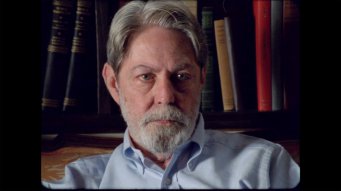
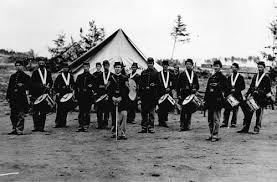
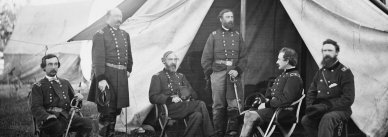
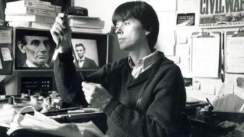
Advertisements
Share this:
Like this:Like Loading...
Related




 Advertisements
Share this:
Advertisements
Share this:

